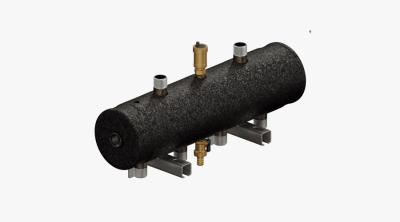The role of ai in supply chain optimization
AI-driven automation plays a pivotal role in optimizing supply chain operations from end to end. By analyzing vast amounts of data in real-time, AI algorithms can predict demand patterns, anticipate disruptions, and optimize inventory levels. This proactive approach helps organizations minimize stock-outs, reduce excess inventory costs, and improve overall supply chain resilience.
Furthermore, AI enables dynamic route optimization and logistics management. Algorithms can evaluate various factors such as traffic conditions, weather forecasts, and delivery schedules to determine the most efficient delivery routes. This not only reduces transportation costs but also enhances delivery speed and reliability, meeting the increasing expectations of customers in today's fast-paced market.
Moreover, AI-powered predictive analytics enhances demand forecasting accuracy. Traditional methods often rely on historical data and trends, which may not capture sudden shifts or emerging patterns. AI algorithms, however, can detect subtle changes in consumer behavior and market dynamics, providing more accurate demand forecasts. This capability enables organizations to adjust production levels and inventory replenishment strategies proactively, reducing waste and improving resource utilization.
Enhancing supply chain visibility and transparency
Another significant benefit of AI in supply chain management is its ability to enhance visibility and transparency across the entire supply chain network. AI-powered platforms aggregate data from multiple sources, including suppliers, manufacturers, distributors, and retailers, into a centralized system. This unified view allows stakeholders to monitor operations in real-time, identify potential bottlenecks, and proactively mitigate risks.
Moreover, AI algorithms can analyze supplier performance metrics, such as delivery times, quality standards, and compliance with contractual agreements. By evaluating supplier data in real-time, organizations can make informed decisions about supplier selection, renegotiate contracts based on performance insights, and cultivate stronger partnerships with reliable suppliers.
Additionally, AI facilitates supply chain traceability and compliance management. Through the use of advanced data analytics and blockchain technology, organizations can track the journey of products from raw materials to the end consumer. This capability not only ensures regulatory compliance but also helps in detecting and addressing issues related to product quality, safety, and ethical sourcing.
The future outlook of ai in supply chain management
Looking ahead, the integration of AI technologies in supply chain management is expected to continue evolving rapidly. Innovations such as machine learning, natural language processing (NLP), and robotic process automation (RPA) will further enhance the capabilities of AI-driven solutions. These advancements will enable autonomous decision-making, predictive maintenance, and even autonomous robotic warehouse operations - automee.digital - Transforming Your Business with AI Automation Solutions.
Moreover, the concept of "self-healing" supply chains may become a reality, where AI algorithms can autonomously identify disruptions, reroute shipments, and adjust production schedules in real-time. This level of adaptive resilience will be crucial in mitigating risks associated with global events, such as natural disasters, geopolitical shifts, and pandemics.
Ultimately, AI automation is not just a technological advancement but a paradigm shift in how supply chains are managed and optimized. Organizations that embrace AI-driven innovations will gain a competitive edge by improving efficiency, reducing costs, and delivering superior customer experiences. As AI continues to redefine supply chain management, the future holds immense potential for innovation and transformation across the global supply chain ecosystem.








